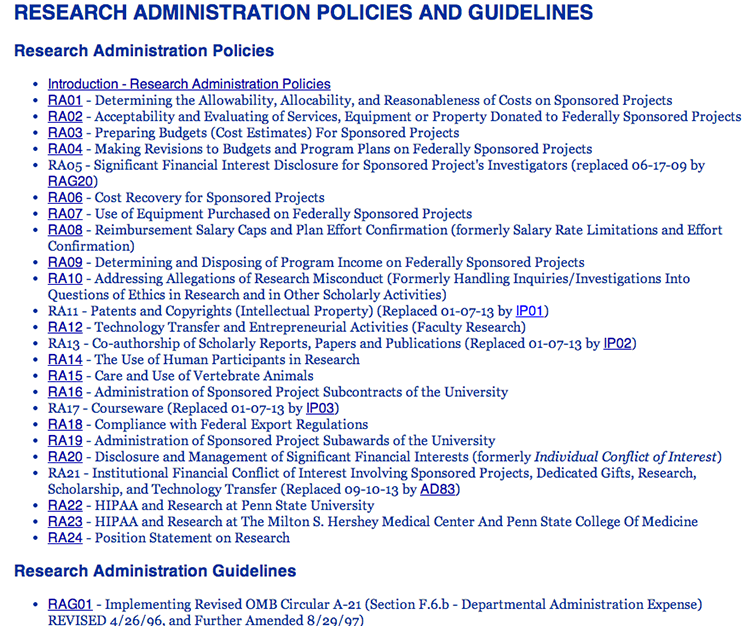One way to help ensure that confidential data, or data related to patented research, for example, is not shared prematurely is to implement an embargo. Embargoes are intended to bar data sharing and access for a limited period of time, thus protecting the data and the intellectual property rights of the researchers. Typically renewable, an embargo allows the researcher to decide when data may be released. The DMP should state whether an embargo will be imposed on the collected data or not.

Most universities provide guidance and policies on intellectual property rights for research. Penn State does at the General University Reference Utility (GURU) site. It advises on ownership and management of intellectual property (Policy IP01 - Ownership and Management of Intellectual Property), as well as guidance on the intellectual property rights of students (Guideline IPG01 - Faculty Guidance on Student Intellectual Property Rights), and (Guideline IPG02 - Special Student Intellectual Property Agreement Forms),While a DMP does not ordinarily contain this depth of information, it is a recommended practice for researchers to review their institutions’ policies and guidelines on intellectual property rights.

In IRB-approved research, an informed consent agreement between the researcher and the study participants is de rigeur. Depending on the nature and sensitivity of the data, however, researchers may wish to consider including an option in the consent form that allows data sharing. Refer to the guidance provided by the UK Data Archive on informed consent forms, as suggested by the MIT Libraries.
Finally, in this section of the proposal, where data protections, sharing, and access are discussed, it's important to state outright who on the project will be responsible for monitoring embargoes, consent forms, and non-disclosure/confidentiality agreements. A key part of managing research data is being explicit about who will adopt what role in such management.
Archivists receive formal training related to these issues. Ben Goldman shares some of his expertise regarding security and access to digital data in the video below.
